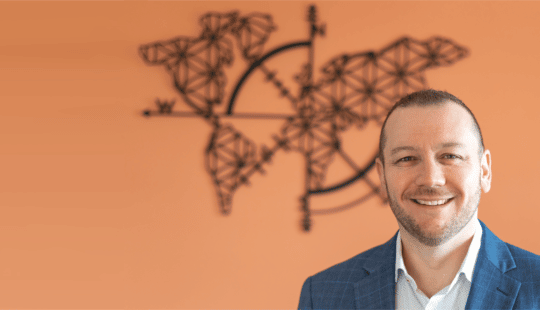A vision for the future begins with learning. As we look to a future with continuous change, building and supporting a culture of learning will be a cornerstone to how work is done. The skills needed today might not be sufficient in a year. Learning helps employees better understand their role, addresses compliance needs and demonstrates that an organisation is investing in their development.
According to the World Economic Forum’s Future of Jobs Report, there are 10 top skills that will be key for any organisation’s purpose and success by 2025. When we group them by their coherence and relatedness, we come up with four key groups of skills that every organisation, regardless of their industry, should consider for their future workforce:
- Problem solving
- Self-management
- Working with people
- Technology use and development
If we look at these skills from a healthcare sector point of view, these are crucial skills for healthcare organisations and apply to every profession. Each skill is basically a requirement of key roles in delivering healthcare services. If we look at employee personas in healthcare, i.e. frontline workers such as doctors, nurses and back office employees in procurement, HR or any function supporting the delivery of healthcare services, these skills are sought after skills that needs upskilling and developing as challenges grow. With the current pandemic, these skills have proved to be important to overcome the challenges of any crisis situation and they are crucial in the post-pandemic world of recovery and rebuilding the future of the organisation.
If we look into these skill groups from a talent development point of view, there are various ways of assessing, managing and developing them, which is one of the key mandates of the HR organisation. It is HR’s responsibility to identify skills gaps, decide whether to train or hire, assess the overall impact of training on objectives, recommend types and methods of training and have an oversight of this continuous learning activity. Ideally the HR function will create a “learning for life-time” culture, so that it becomes a part of the organisation’s DNA.
Atrium Health, formerly Carolinas HealthCare, built a continuous learning culture which led to exceptional patient care and ensured that employees were put first. Atrium Health continues to increase employee engagement, inspire learning and boost careers. By supporting and energising its teammates, the healthcare company consistently delivers the highest standards of patient care, which in turn is helping it become recognised as one of the first and best choices for care.
Another key point to consider in building this learning culture, is that any upskilling or reskilling initiative must align with a broader, strategic workforce plan. Often there are times when an organisation follows key trends in talent development, both from training design and a delivery point of view, and a real skills gap issue can be overlooked. The key objective is to identify the gap and then define the learning strategy to bridge the gap.
What we see now in many healthcare organisations, is the need is urgent and there needs to be a clear strategy and plan to bring the right people onboard to achieve continuity in delivering exceptional services to patients, whilst ensuring these people have the right skills. This is why a strategic workforce plan cannot be segregated from overall skills analysis to see what skills and capabilities your organisation has at that moment, what additional skills are required and what skills you no longer need. This way you can reskill these individuals and they can continue serving your greater purpose as an organisation.
According to a recent IDC report on Workforce Agility, 44% of government agencies indicated that talent excellence in a collaborative and innovative culture is a priority based on the digital transformation vision, strategy, and roadmap. Healthcare organisations are also experiencing similar challenges in their current efforts to deliver relevant learning offerings to their workforce.
Aligned and agile learning is proving to be the way forward for healthcare organisations and with the latest innovations, new learning approaches and platforms can address these emerging learning needs. SAP SuccessFactors Learning provides an agile platform to help build the learning structure that your organisation strives for.
For more information, visit the HR and People Engagement area of sap.com and the SAP News Center. Follow SAP on Twitter at @SuccessFactors and @SAPNews.



